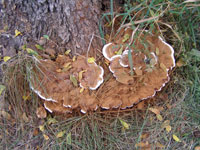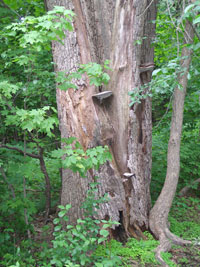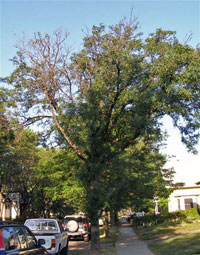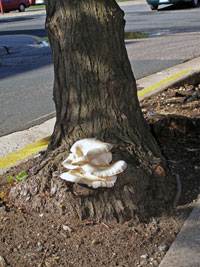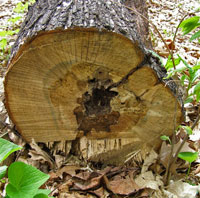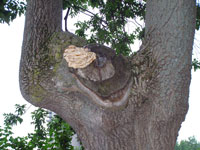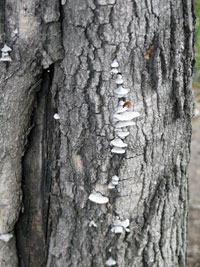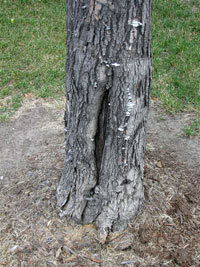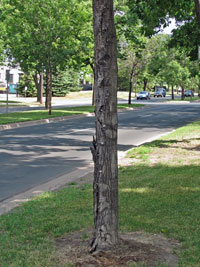Extension > Garden > Diagnose a problem > What's wrong with my plant? > Deciduous Trees > Honeylocust > Fungi growing on trunk or branches
Honeylocust > Branches > Fungi growing on trunk or branches
1 of 3
Ganoderma root and butt rot
Ganoderma spp.
- Fungal conks, a semicircle shelf fungi, can be found from the base of the tree up to 3 feet high on the trunk
- Conks are reddish brown and shiny on top, white and porous underneath, a rim of white may be visible on the edge of growing conks
- Leaves are smaller in size and turn yellow earlier than normal
- Canopy appears thin with few leaves and multiple dead branches
- Infected wood at the base of the tree is white, soft, stringy or spongy
- Infected trees frequently break or fall over in storms
- More information on Ganoderma root and butt rot
2 of 3
Heart rot
Phellinus spp., Trametes versicolor, Climacodon
septentrionalis, Oxyporus populinus, Laetiporus sulfereus
and others
- Fungal fruiting bodies arise along the stem, near a pruning wound, crack or other wound
- Many shapes and sizes of fungal fruiting bodies may be seen
- The canopy may show no symptoms or may have small yellowing leaves or dead branches depending on the extent of the trunk decay
- In cross section of the trunk, the wood at the center is discolored, soft, crumbling, stringy or spongy
- More information on heart rot
3 of 3
Sapwood rot
Schizophyllum commune
- Shelf fungi are white and appear fuzzy on top
- Wood below fungal shelves is yellowish to white, crumbly and decayed; bark around fungal shelves is killed and often falls off
- Dead branches within the canopy
- Groups or rows of small (<2 inches wide) semi-circle self fungi along killed branches or on the main trunk
- Common on trees with an open wound or crack



